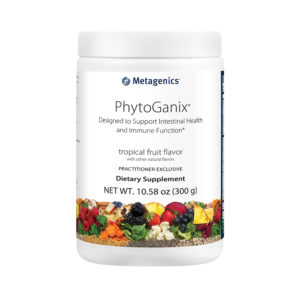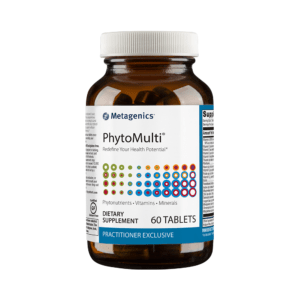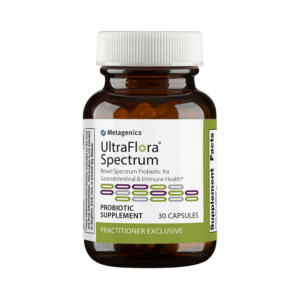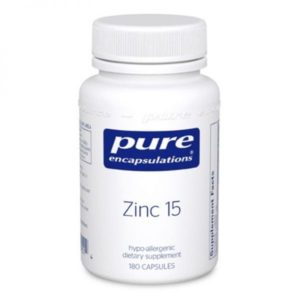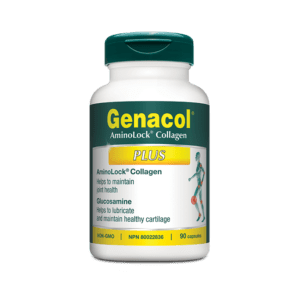Go With Your Gut: Here’s How A Healthy Gut Affects Your Overall Health
Plus, the supplements you need to achieve optimal gut health.

If you’ve never given any thought or attention to your “gut health” before, you’d be surprised: It affects you and your body in more ways than one.
Simply put, your gut health refers to the function and balance of bacteria in the many parts of your gastrointestinal tract, from your esophagus and stomach down to your intestines. We know this talk isn’t entirely sexy, but hear us out! For starters, having a healthy gut microbiome—the collective term for the group of bacteria, viruses, fungi and other microbes in your stomach—is crucial in order for us to eat, digest, and process food without discomfort.
This is because the good bacteria are essential in fighting off bad bacteria that may invade our system, preventing illnesses and diseases. Once the balance is thrown out of whack, however, we often experience digestive problems such as bloating, abdominal pain, irritable bowel syndrome, constipation, and vomiting, to name a few.
But guess what? It’s not just our tummies that are directly affected by our gut health. Since it’s connected to the rest of our body through nerves and hormones, it also plays a pivotal role in helping us maintain our overall health and well-being:
- Heart health: We all know how our diet—specifically a high-cholesterol diet— affects our risk for heart and circulatory disease. That said, it’s important to strive for a good balance of good bacteria in the food we eat in order to prevent the buildup of cholesterol in our blood vessels.
- Kidney health: People with kidney disease tend to have higher levels of intestinal bad bacteria, which can lead to chronic inflammation and the inadequate metabolism of toxins in the body.
- Mental health: Since your gut and your brain are connected through the so-called gut-brain axis, the chemicals in your gut have also been found to play a vital role in controlling your moods and behavior. Moreover, changes in the balance of bacteria have been known to contribute to symptoms of anxiety, depression, and other mental conditions.
- Skin health: FYI, the skin is actually a great barometer for what’s going on in your gut. This is because the gut is where 70% of our immune system lives, so any imbalance or inflammation can easily manifest in our skin—usually through issues such as acne, rosacea, and eczema.
This Way To A Healthier Gut
While we’re born with the gut microbiome that we have, the good news is it’s greatly influenced by our lifestyle—primarily by what we put inside our bodies. This means we can actually tilt the balance to our favor by watching what we eat and making sure we get the nutrients needed to promote the growth of good bacteria.
The easiest way to do that is diversify your diet in order to have a more adaptive microbiome, one that’s less prone to bad bacteria attacks. This means eating lots of fruits and vegetables and cutting back on processed foods and refined sugars. The problem is most of us do not have a balanced diet so we don’t get our complete nutritional needs from our daily food intake, says Dr. Maximin Navarro, Bella Pelle Philippines’ resident dermatologist, a Functional Medicine practitioner, and a Philippine Dermatological Society (PDS) fellow. To fill in the gaps, we can take oral supplements for an extra boost.
Dr. Navarro is quick to give this reminder, though: “I recommend consulting your attending physician or a doctor who is trained in functional medicine or nutrition before adding an oral supplement to your diet.” This is to determine any possible drug interactions with your current medications.
Check out some of the good-for-you supplements that can do wonders for your gut health:
Probiotics & Prebiotics
Probiotics are essentially good bacteria that help build a thriving ecosystem in your gut. You can easily find them in ready-to-eat food such as yogurt, kefir, aged cheeses, miso, and fermented items like kimchi and kombucha. If you’re averse to these, however, you can opt for probiotic supplements, which are best taken in the morning on an empty stomach.
Prebiotics, meanwhile, are what probiotics feed on, and which encourage beneficial bacteria to multiply in the gut. Plus, prebiotic fiber also helps you feel fuller longer (so it’s good for weight loss!). Natural prebiotic sources include garlic, onions, bananas, apples, and whole oats.
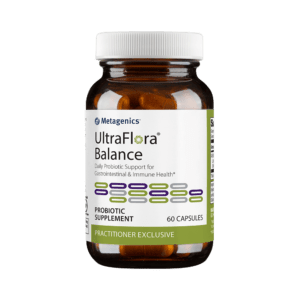
Try: Metagenics UltraFlora Balance, P2,600
This contains a dairy-free blend of highly viable pure strains of L. acidophilus and B. lactis Bi-07 bacteria, which are proven to support healthy intestinal flora and immune health.
Designed to support intestinal health and immune function, PhytoGanix® features 20+ whole foods in each serving, including: organic fruits, organic vegetables, organic flax seed, organic chia, organic quinoa sprouts, herbs, plant enzymes, prebiotics, and probiotics.
You may also want to check out:
L-Glutamine
Naturally found in the body, L-glutamine is an amino acid that supports the intestines, boosts immune cell activity in the gut, improves nutrient absorption, and helps prevent infection and inflammation. It’s also believed to help relieve digestive problems such as diarrhea, especially during times of illness and stress.
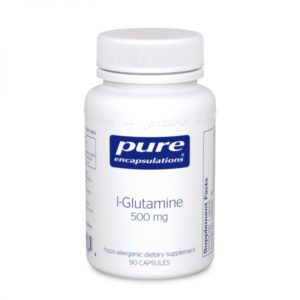
Try: Pure Encapsulations L-Glutamine 500 Mg
This naturally supports the healthy functioning and mucosal lining of the gastrointestinal tract. It also helps promote and preserve lean muscle mass.
Zinc
Known for supporting the entire body—especially immune and tissue health—zinc is also important in producing digestive enzymes that are critical for intestinal wellness. But the right balance is key: Too much or too little zinc can cause a shift in the gut microbiome. Food sources rich in zinc include oysters, red meat, poultry, and fish.
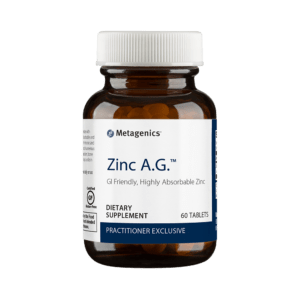
Try: Metagenics Zinc A.G., P1,200
This features zinc as an amino acid chelate with arginine and glycine, and is designed to be highly absorbable and well-tolerated by the stomach. It’s also helpful in energy metabolism, bone mineralization, and protein synthesis.
These vegan and gluten-free supplements feature 15 mg of zinc, and is formulated to support the body’s natural defense system, as well as enhance digestion and metabolism of important vitamins, minerals, carbohydrates and other essential nutrients.
Collagen
An important protein found in almost every tissue of the body (and is super helpful in keeping skin young-looking), it also plays a beneficial role in gut health. Studies have found that collagen peptides prevent the breakdown of the intestinal lining and deliver anti-inflammatory properties to promote digestive health.
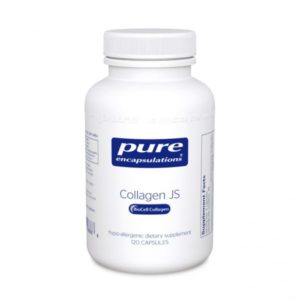
Try: Pure Encapsulations Collagen JS
This multi-molecule collagen complex primarily offers support for joint health and healthy skin, promoting skin elasticity and firmness as well as diminishing fine lines and wrinkles. Collagen also contains large amounts of amino acids glycine, glutamine and proline, all of which benefit intestinal health.
This combines collagen with glucosamine, which are essential for maintaining joint health and a healthy cartilage, and helps reduce inflammation, too—benefiting gut health.
Turmeric
Known for its antioxidant and anti-inflammatory properties, turmeric contributes to healthy digestion and promotes the growth of healthy bacteria. Plus, it helps alleviate tummy aches that may come from the consumption of alcohol and spicy food.
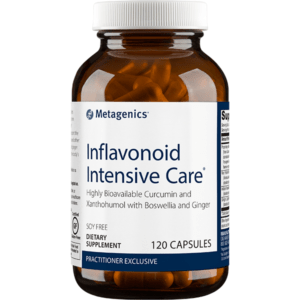
Try: Metagenics Inflavonoid Intensive Care, P2,600
Featuring curcumin (found in turmeric) and fenugreek, this helps the body’s response to oxidative stress and external stressors, relieving inflammation and body pains. It also has boswelia and ginger extracts to support immune health.
Vitamin C
Aside from being crucial in promoting immune health, the antioxidant properties of Vitamin C are also important in digestion as they support healthy teeth and gums, and allow the body to properly absorb iron.
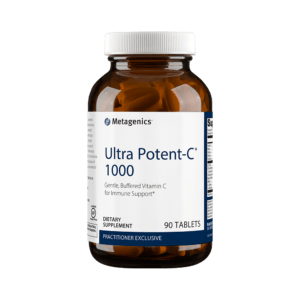
Try: Metagenics Ultra Potent-C 1000, P2,200
A rich source of antioxidants, this vitamin C formula features a buffered delivery system designed to help prevent stomach aches sometimes associated with high vitamin C intake.
Omega-3 Fatty Acids
Studies have found that those who eat a diet rich in omega-3 fatty acids, commonly found in fish, nuts, seeds, and plant oils, have more bacterial diversity in their gut, which is good for one’s overall health.
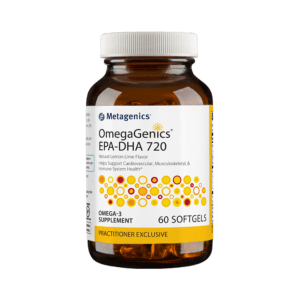
Try: Metagenics Omegagenics EPA-DHA 720, P1,600
This supplement is a concentrated source of omega-3 fatty acids from sustainably sourced coldwater fish, and is primarily formulated to support immune, cardiovascular, and musculoskeletal health.
To know more about the recommended products or for customized recommendations, you can book a virtual dermatological consultation with Dr. Maximin Navarro, Bella Pelle Philippines’ resident dermatologist and a Philippine Dermatological Society (PDS) fellow, here.
Reminder: It’s always best to consult with a physician before taking any supplements, especially if you have existing medical issues.
For more beauty and skincare tips, subscribe to our newsletter:
SHOP OTHER PRODUCTS:
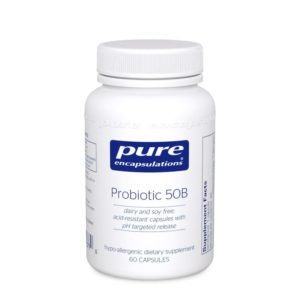 Pure Encapsulations Probiotic 50B |
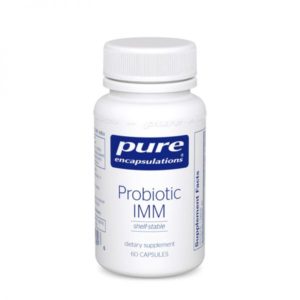 Pure Encapsulations Probiotic IMM |
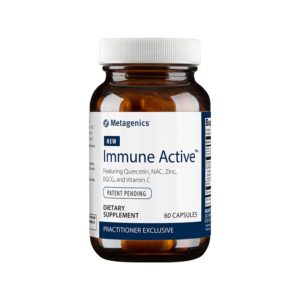 Metagenics Immune Active |
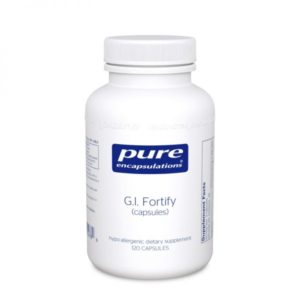 Pure Encapsulations GI Fortify |
RELATED READS:
- These Vitamins and Supplements Can Help With Your Anxiety and Mood Swings
- These Health Supplements Can Actually Help You Get Better Skin
- Do Oral Sunscreens Work? Here’s What You Should Know

